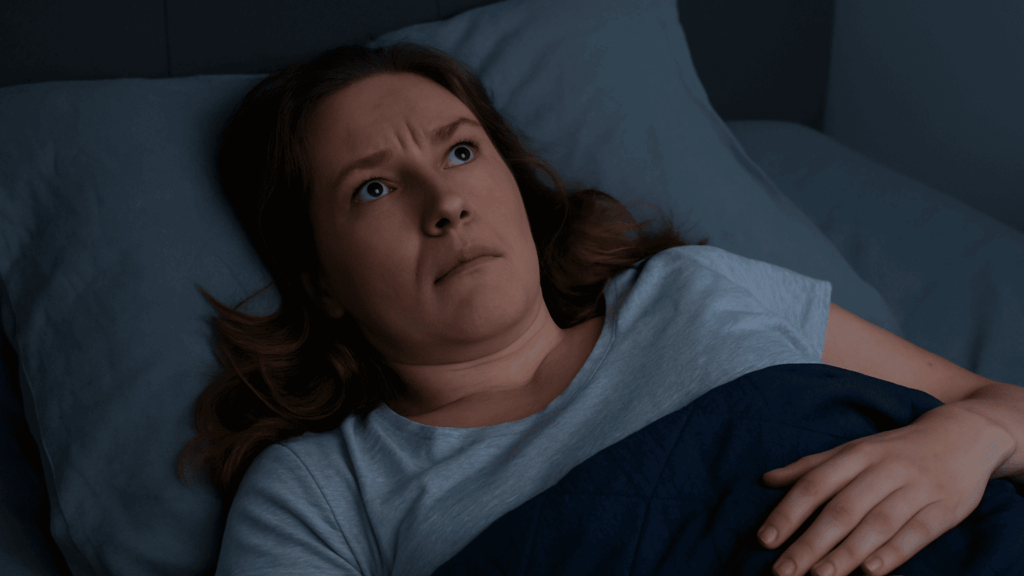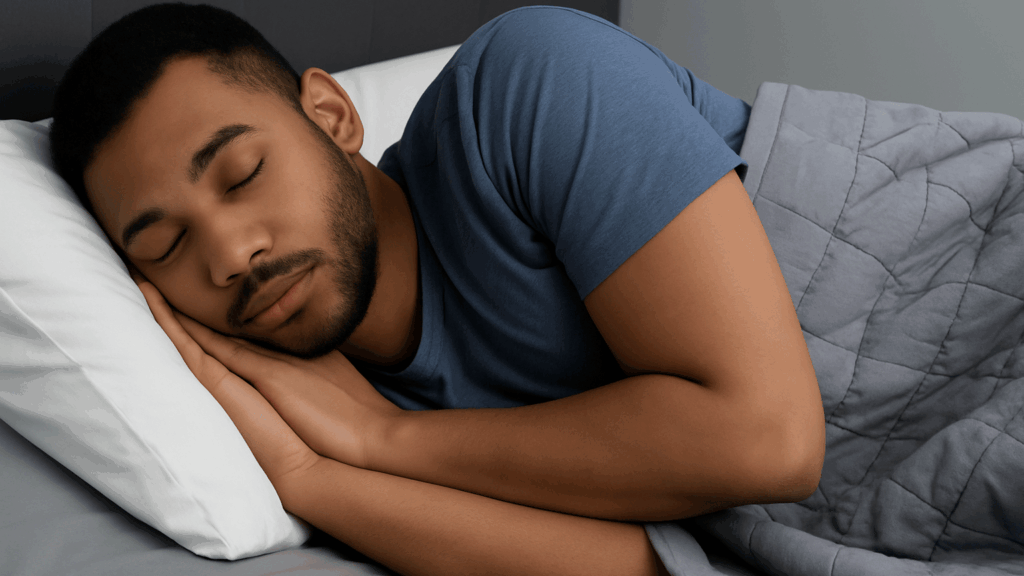The Truth About Twitching While You Sleep: Harmless or a Warning Sign?

You’re finally drifting off, your body relaxing into sleep, when suddenly a sharp jolt.
Your leg kicks, your arm twitches, or your whole body jerks you awake. It can feel unsettling, and you may find yourself wondering: Is this normal? Should I be worried?
If this sounds familiar, you’re in compassionate company. At Quadra Wellness, many clients arrive with this very concern. Twitching in your sleep, especially as you’re falling asleep, is incredibly common and in most cases, entirely harmless. But when it becomes persistent, uncomfortable, or anxiety-inducing, it can affect how safe and restful sleep feels.
Let’s gently unpack the science behind nighttime twitching, why it happens, and what you can do to better support your sleep.
What Causes Sleep Twitching?
Sleep-related twitching is often referred to as hypnic jerks (also called sleep starts). These are sudden, involuntary muscle contractions that occur during the transition from wakefulness to sleep. Scientists believe hypnic jerks occur as your brain shifts from alertness (beta waves) into the early stages of sleep (alpha and theta waves).
Some theories suggest it may be a protective evolutionary reflex. Others believe it’s a simple neurological misfire as the nervous system powers down. Whatever the cause, hypnic jerks are incredibly common; studies estimate that up to 70% of people experience them at some point.
There are other types of twitching during sleep as well:
- Periodic Limb Movements of Sleep (PLMS): Repetitive leg movements, often during deeper sleep stages.
- REM Sleep Behavior Disorder: More pronounced movement that occurs during dreaming, often linked to neurological conditions.
- Restless Legs Syndrome (RLS): An urge to move the legs, often before sleep, sometimes continuing into sleep.
For most people, twitching during sleep isn’t a disorder. But for some, it can be a sign of underlying stress, sleep deprivation, or even unprocessed anxiety.
Read more: How to deal with a noisy brain at night?
Why You Might Twitch in Your Sleep (Or As You Fall Asleep)
Sleep-related twitching is often associated with certain common triggers, such as:
1. Stress and Anxiety
When your nervous system is in a hypervigilant state even if you feel “tired” your body resists the shift into deeper rest. Twitching becomes a physical expression of the internal tension.
2. Sleep Deprivation
If you’ve had a string of late nights, interrupted sleep, or poor sleep quality, your brain is more likely to “misfire” during the transition into sleep.
3. Caffeine and Stimulants
Late-afternoon coffee, energy drinks, or even certain medications can increase the chance of hypnic jerks by overstimulating the nervous system.
4. Physical Exhaustion
Paradoxically, overexertion during the day can lead to more intense sleep transitions at night, where the brain attempts to shut down quickly.
5. Sleep Inconsistency
An irregular sleep-wake schedule can confuse your circadian rhythm, creating a bumpy landing into sleep.

Why Do Men Twitch in Their Sleep?
Twitching during sleep isn’t exclusive to any one gender, but some men may notice it more frequently or intensely due to a combination of biological and lifestyle factors. These can include:
- Higher baseline muscle mass: Men typically have more muscle mass, which might make their muscle movements during sleep more noticeable.
- Stress and overstimulation: Demands from work, family, or social pressures can lead to elevated stress levels, which may heighten the body’s fight-or-flight response as it winds down at night.
- Caffeine or stimulant intake: Coffee or energy drinks consumed later in the day can interfere with the body’s ability to transition smoothly into sleep.
- Exercise timing: Late-night workouts, while healthy overall, can leave the nervous system too activated at bedtime.
Sleep twitching in men is usually not a sign of something dangerous, but it can be a clue that the nervous system is having trouble settling.
Get a FREE 20-minute consultation for your sleep issues!
What You Can Do: 5 Evidence-Based Strategies to Reduce Sleep Twitching
1. Establish a Wind-Down Routine
Create a 30-60-minute buffer before bed where you signal to your body that it’s safe to relax. This might include dim lights, gentle stretching, or quiet reading.
2. Practice Body Scan or Progressive Muscle Relaxation
These CBT-I-backed techniques help your brain release control of muscle groups, making it less likely your body will jolt itself awake. (Bonus: they also ease nighttime anxiety.)
3. Avoid Caffeine and Intense Stimulation After 2 PM
Cutting back on stimulants gives your nervous system a clearer runway into rest. Try herbal teas, deep breathing, or walks after dinner instead.
4. Keep a Consistent Sleep Schedule
Going to bed and waking up at the same time daily trains your internal clock to expect rest at predictable times, reducing sleep transition “surprises.”
5. Shift Your Relationship with Sleep
Instead of trying to force sleep (which activates stress), try welcoming it. This is a foundational principle in both CBT-I and ACT. You don’t need to “achieve” sleep. You create space for it to arrive.
The Bottom Line: Is It Harmless or a Warning Sign?
In the vast majority of cases, nighttime twitching is completely benign. But if your sleep twitches are accompanied by:
- Unusual dream enactment (e.g., punching, yelling)
- Daytime fatigue despite adequate sleep
- Leg discomfort or urge to move at night
- Significant anxiety or fear of falling asleep
Learn more about what causes sleep-related twitching.
Most importantly, try not to pathologize your body’s signals. Twitching is often a sign your system is trying to downshift but needs a little more support. With the right tools, that support is absolutely possible.
Let Sleep Come to You
Sleep doesn’t respond well to pressure. It responds to permission, routine, and gentleness. Twitching while you sleep doesn’t mean you’re broken. It may just mean your body is looking for a smoother landing.
At Quadra Wellness, we help clients learn how to respond with curiosity, not panic and build trust in their ability to sleep well again.
Ready to transform your relationship with sleep? Learn more about our “Gently to Sleep” program and take the first step toward restful nights and energized days.
Don’t forget to get a FREE 20-minute consultation for all your sleep issues!
